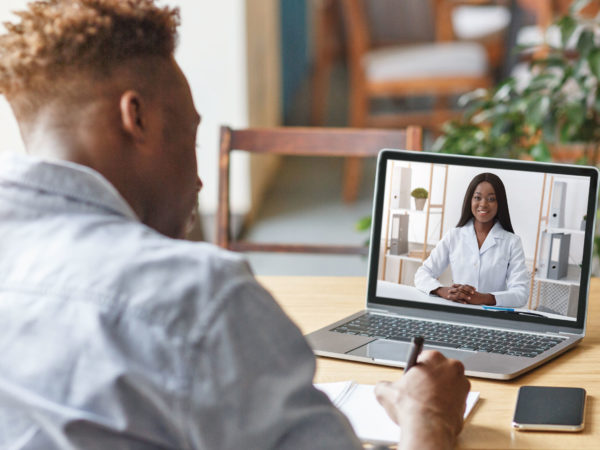
The number of people in the U.S. with diabetes and prediabetes, especially Type 2 diabetes, is on the rise. Right now, six percent of Americans are diabetic, with 34 percent who are pre-diabetic(1). What’s concerning is that many people at risk don’t realize it, and those that do aren’t getting the care they need—and this presents a challenge. First, their health and well-being are at risk. And second, they’re in danger of worsened health and complications that can develop from untreated symptoms.
Complications include heart disease, kidney disease and vision loss—all of which tack on additional health care costs for both employees and their plan sponsors.
How diabetes and pre-diabetes are currently treated
The problem with today’s approach to treating diabetes and pre-diabetes is that it’s too fragmented and doesn’t offer enough support. Diabetes, like any disease, is with a person around the clock—100 percent of the time. And factors that are key in managing their health, like monitoring blood sugar, eating right and getting active, are ever-present.
Current treatment methods provide little time with a health care professional—just five waking hours or 0.1 percent of the year(2). That leaves 99.9 percent of the year that diabetics and prediabetics are on their own in terms of lifestyle management and health care support. With a more person-first approach, these same people could have better health outcomes, but health care providers are often overwhelmed and under-resourced. This presents an opportunity to improve a broken system to improve health outcomes.
Key elements of inter-connected support
There is a better way. A fuller, more well-rounded approach to diabetes management is the ability to help diabetics around-the-clock, in a way that’s convenient. They need a way to track their blood glucose, reminders to check their blood and take medications, and support to answer questions and discuss concerns. It’s more than can be easily offered by just one health care provider. But with technology and the development of mobile devices, the concept of 24/7 tracking, support and information is entirely possible.
Livongo for diabetes management
Livongo is a diabetes management system that helps diabetics take control of their health with a digital glucometer. They can check their blood sugar, store their readings, get real-time feedback and analyses, share their health reports, order strips and even talk with a health coach. Livongo helps diabetics stay on top of their condition with information to understand their blood sugar numbers—without the need to schedule time with a doctor. And when they need guidance, they have access to expert, qualified coaches who follow standards and curriculum from the American Diabetes Association and American Association of Diabetes Education.
Livongo is available to add to a Meritain Health benefits plan as an added means to help members live in their very best health. It’s a valuable addition to a strong population health management strategy.
Does it work?
Livongo’s approach to managing diabetes has been shown to help reduce HgbA1c levels in participating members by 0.8 percent, on average. It has also provided an average ROI of 3.4, and an average year-one savings of $131 PPPM. In the journey to help employees manage diabetes, Livongo is a valuable ally for information and support to help employees learn how to self-manage their condition.
To learn more about Livongo, its benefits and how to add it to an employee health care plan, please contact your Meritain Health representative.
- Livongo data on file, 2020
- Diabetes Hands Foundation. Presented at ADA Conference 2015



